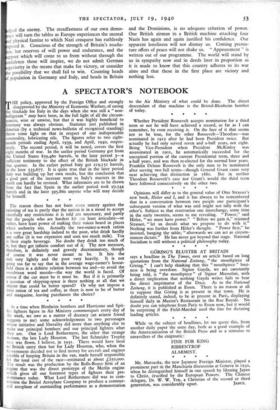The reason there has not been more outcry against the
rationing of tea is partly that the nation is in a mood to accept cheerfully any restrictions it is told are necessary, and partly that the people who are hardest hit are least articulate—or rather, have least power of making their voices heard in places where authority sits. Actually the two-ounce-a-week ration is a very great hardship indeed to the poor, who drink hardly any coffee (it is too expensive and uses too much milk). Tea is their staple beverage. No doubt they drink too much of it, but they get infinite comfort out of it. The new measure, therefore, is definitely and gravely discriminatory, though of course it was never meant to be. It hits the rich very lightly and the poor very heavily. It is not going too far to say that in the average wage-earner's house- hold there is a definite relation between tea and—to avoid the overdriven word morale—the way the world is faced. Of course if the cut must be it must be. But if it is primarily a question of shipping-space is there nothing at all that we import that could be better spared? Or why not impose a joint ration of tea and coffee, as there is now to be of butter and margarine, leaving purchasers the choice?
* * * *


































 Previous page
Previous page